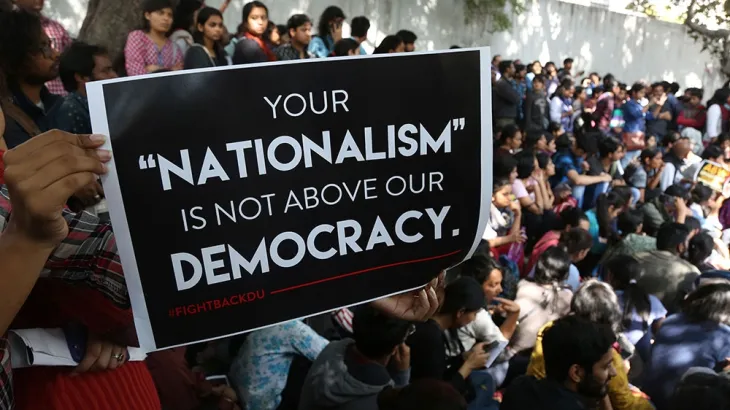Bhimrao Ramji Ambedkar, the chief architect of the Indian Constitution, said that in politics, hero worship is a sure road to degradation and eventual dictatorship. He earnestly advocated John Stuart Mill’s advice to all who are interested in the maintenance of democracy: ‘(not) to lay their liberties at the feet of even a great man, or to trust him with power that enables him to subvert their institutions’.
The 2018 Gothenburg-based V-Dem Institute report categorised India under “elected autocracy.” The status has further dropped on multiple metrics to emerge as “one of the worst autocratizers” on its ‘Democracy Report 2024’.

BJP’s Mukesh Dalal won the Surat Lok Sabha Constituency “unopposed” on Monday, April 22, 2024, two weeks ahead of the polls. He received the ‘certificate of election’ from the district collector and election officer Saurabh Pardhi after the nomination papers of the Congress candidates were rejected for ‘discrepancies in the verification of signatures of three proposers’ and eight other independent candidates withdrew from the race.
)
Congress Leader and Advocate Babu Mangukiya alleged that the three congress proposer signatories have been abducted, and a police report has been filed. He added, ‘Instead of rejecting the nomination without verifying the signatures, an investigation is necessary to find the signatories.
“Taking away the people’s right to elect their leader is another step towards destroying the Constitution of Babasaheb Ambedkar. I am once again saying that this is not just an election to form a government; this is an election to save the country; this is an election to protect the Constitution,” Rahul Gandhi said in Hindi in a post on X.
The Chandigarh MCD mayor elections held in February 2024 were another audacious attempt at rigging the elections. Despite the timely intervention of the apex court, the arrogance of power is discernible. The Chief Justice of India called it “the murder of democracy.”.
/newsdrum-hindi/media/media_files/Ghr2r5IgJUpLFn42ffdi.jpg)
The attack on the opposition is no longer covert, as evidenced by the mass suspensions of the opposition by the parliament, and with it, the parliamentary machinery that holds the government accountable collapses. This goes against the spirit of the constitution and allows the majority party in power to bulldoze key legislation in an “opposition-less” parliament without any debate or dissent.
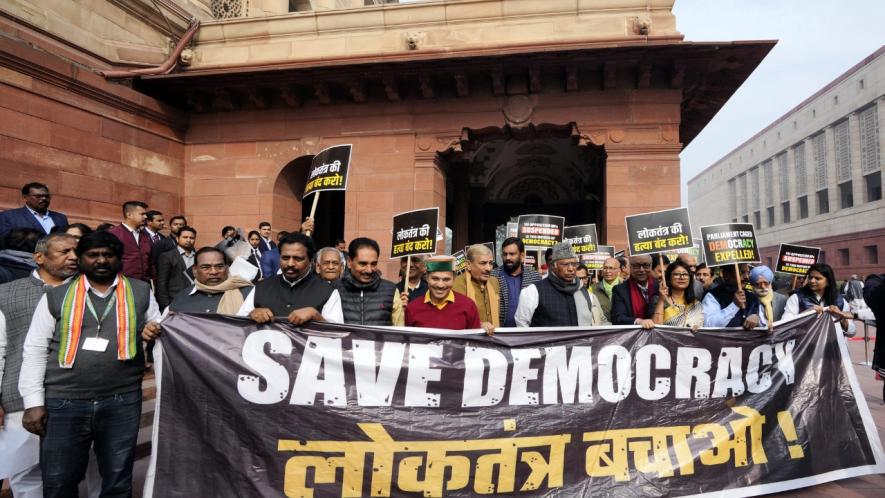
The Supreme Court directs the appointment of Election Commissioners on the advice of the Prime Minister, an opposition leader, and the CJI to ensure the independence of this key institution of democracy, but in December 2023, the Parliament cleared the Chief Election Commissioner and other Election Commissioners (Appointment, Conditions of Service, and Term of Office) Act, 2023.
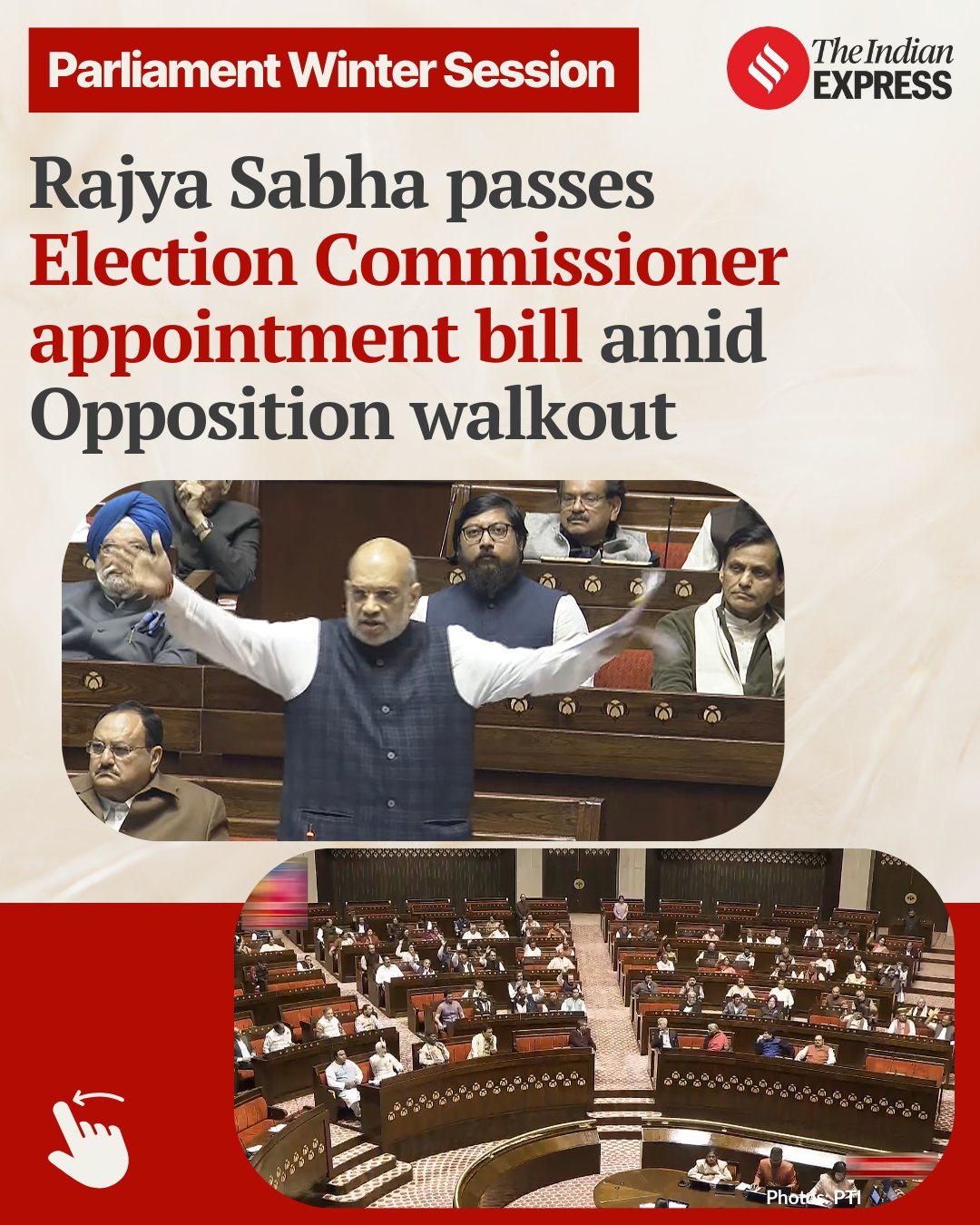
A panel comprising the Prime Minister, the Leader of Opposition in Lok Sabha, and a Union cabinet minister to be nominated by the Prime Minister shall recommend the name for the appointment to be made by the President.
This is widely observed as a threat to the independence of ECI and detrimental to the health of democracy and free and fair elections.
Free and fair elections are the soul of a democracy, and the Election Commission of India, an independent institution, is entrusted with the responsibility of ensuring a level playing field for all the political parties. The model code of conduct is a set of conventions that is unanimously agreed upon by all the stakeholders involved in the electoral process.
Although the elections in India are free, they do not seem fair as there is no level playing field. Equal access to financial resources, media, and freedom to campaign are the elements of a level playing field.

Financial Resources: With the electoral bonds, the BJP has received the lion’s share of the total funds donated to the political parties, with Rs. 6060 crore, while all the other political parties combined couldn’t raise as much money.

When Union Home Minister Amit Shah spoke about the revelations of the electoral bond data during the India Today Conclave, he said, “I want to clear my position in front of the nation. The BJP received approximately Rs 6,000 crore worth of bonds, whereas the total worth of bonds was Rs 20,000 crore. Where are the remaining bonds that are worth around Rs 14,000 crore? I will explain. TMC received Rs 1600 crore, Rs 1400 crore to Congress, Rs 1200 crore to BRS, Rs 775 crore to BJD, and Rs 639 crore to DMK.”
He blatantly lied and misrepresented the data, but no follow-up question was posed to fact-check him. The total worth of the bonds was around Rs. 12,000 crores, not Rs. 20,000 crores. No questions were posed on the serious allegations of “Chanda do Dhanda Lo” (favour, tender, or licence in exchange for donations) and the alleged “extortion racket” through electoral bonds and central agencies.

The ECI prescribes a spending limit of Rs 95 lakh per candidate per constituency.
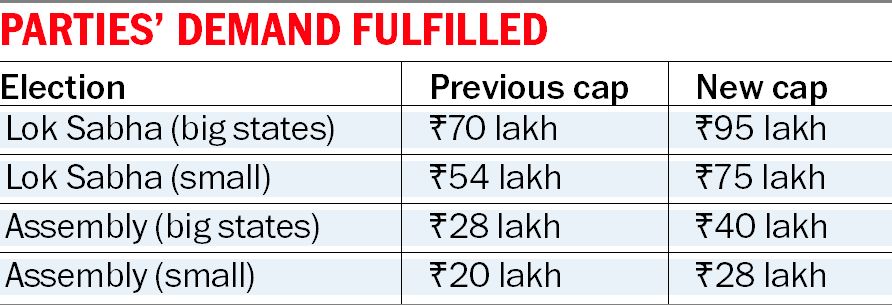
As per the data available from the ECI, the BJP contests 437 seats at the expense of 1264 crores, which is more than 3 times the limit, while the opposition is put at a grave disadvantage with central agencies freezing the bank accounts of the Congress and digging up old cases to tie up their funds further after the imposition of the model code of conduct. The weaponization of the central agencies against competition further puts them in shackles.
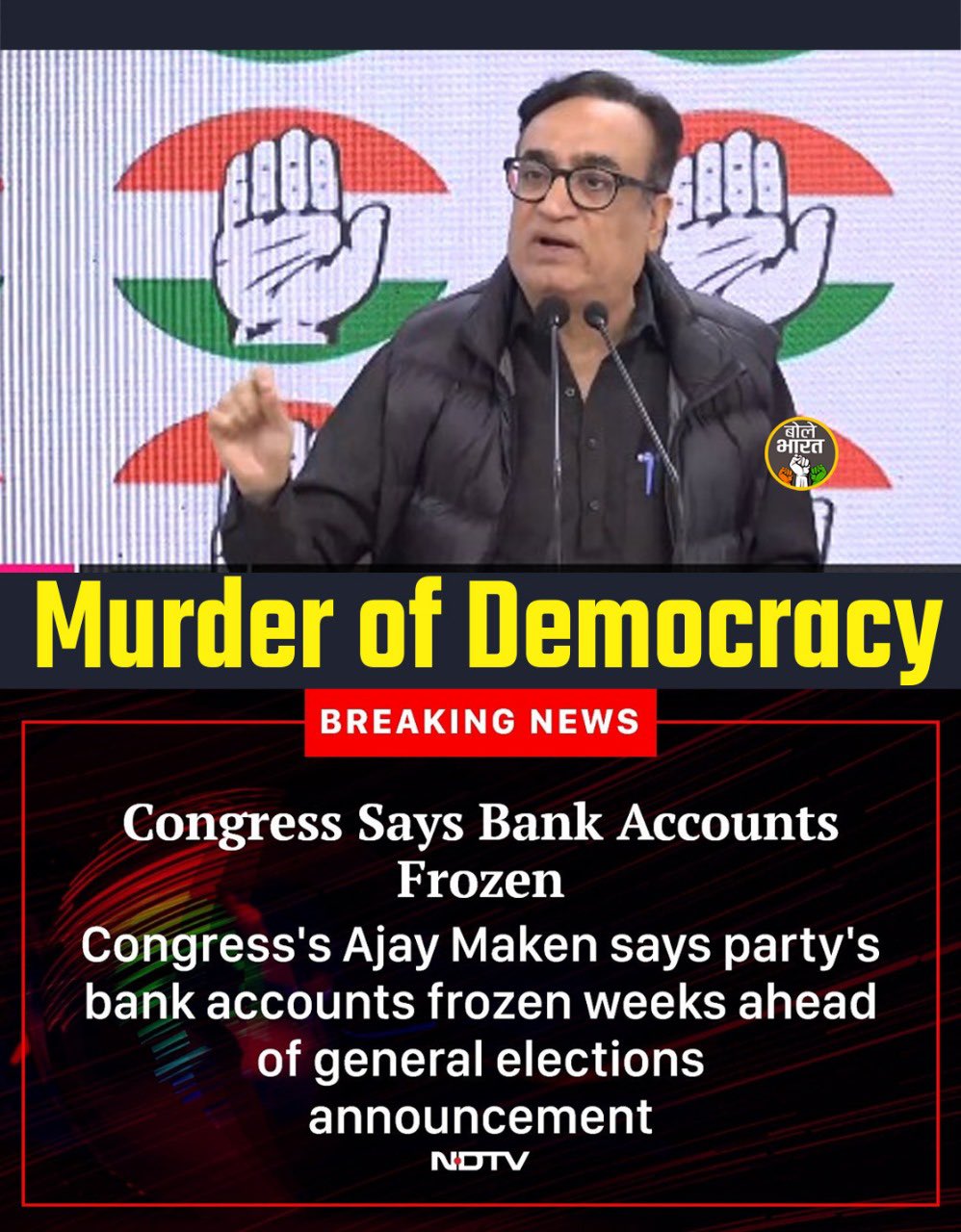
97% of political cases filed by the Enforcement Directorate (ED) are against opposition leaders, with a conviction rate of only 2–3%.
The arrest of a sitting Chief Minister and ministers of his cabinet ahead of the Lok Sabha polls, with no money trail or any other evidence despite the two years of rigorous investigation and hundreds of raids, just shows the sheer incompetence of the agencies. The motive behind such actions appears suspicious.
‘Since 2014, as many as 25 prominent politicians facing action from central agencies for alleged corruption have crossed over to the BJP. They cut across party lines: 10 are from the Congress; four each from the NCP and Shiv Sena; three from the TMC; two from the TDP; and one each from the SP and YSRCP.
In 23 of these cases, their political move has translated into reprieve, an investigation by The India Express has found.’

Prominent names that are much discussed are Ajit Pawar accused in the 70,000 crore Co-operative bank scam, Naveen Jindal accused in the 21,000 crore coal gate scam, Praful Patel accused in the 30,000 crore Air India scam, Suvendu Adhikari and Himanta Biswa Sharma accused in the 10,000 crore Sharda Chit fund scam, and Ashok Chavan, who resigned from the CM chair of Maharastra in the Adarsh Housing scam.

Here, a popular effect has been observed known as the “BJP Washing Machine” effect. Even the toughest corruption charges are washed off in one spin.
Navika Kumar and Union Finance Minister Nirmala Sitharaman’s conversation on the washing machine effect went as follows:
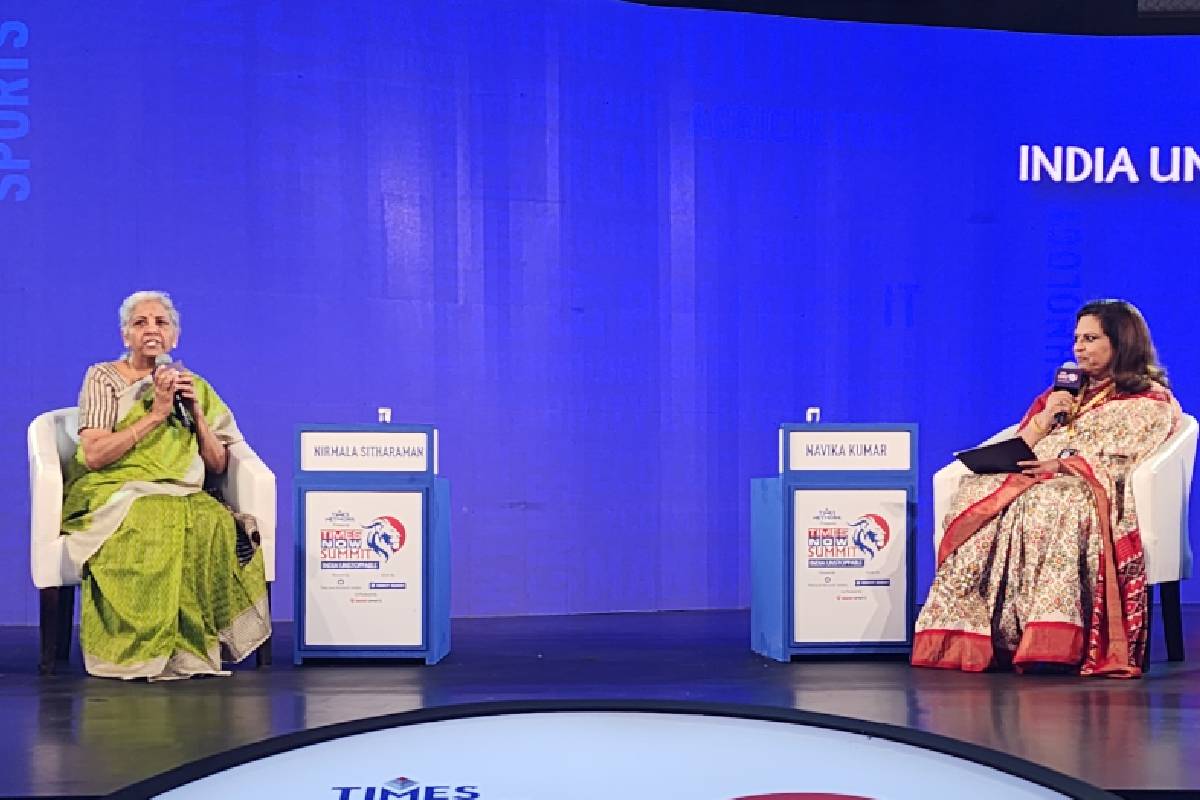
Navika: “So tainted leaders joining your party, no bar? Everybody is welcome. Even they are welcome with a red carpet rolled out for them.”
Finance Minister Nirmala Sitarman: “As I said, the party is open. We welcome everybody.”
Navika: “Everybody?”
Nirmala: “Hmmm.”
Navika: “Even people who have nine CBI cases against them?”
Nirmala: “My party is welcoming everybody.”
The media is seen absolutely quiet on the said washing machine effect, electoral bonds, crushing of the opposition, and the brutal violations of the model code of conduct, amongst more pressing concerns.
Prime-time news debates do not speak of unemployment, inflation, education, healthcare, or poverty; instead, they’re shielding the government from any uncomfortable questions. A Newslaudry report on six primetime news anchors’ shows leading up to the elections reveals a total of 429 shows, of which 224 were anti-opposition, 116 were pro-Modi, 24 were on Hindu-Muslim issues, 6 were pro-opposition, and 5 were on jobs and education.

The vice chairman and executive editor-in-chief of the India Today Group, Ms. Kalli Purie, said, “The media cannot play the role of the opposition. Expecting it to do it leads to unfair charges of Godi or Modi media,” she said. “If the opposition is in disarray, the media cannot be blamed for it. We cannot present another side if it doesn’t exist. We are observers in this boxing match. We are not the players.”

She added, “This is not about fear. This is a matter of rules, roles, and competence. We are the medium; we are not the message.”
An average Indian depends on the media to form an opinion; an average Indian consumes television news. He doesn’t do his own fact-checking to verify what’s being fed. He trusts the press to present factual information, and he trusts the institutions.

He is swayed by the passion of the loud presenter; he is made to feel that the presenter is posing questions in his (the average Indian’s) interest. The tickers used, the language spoken, and the keywords placed find a place in his mind.
He is naive; he doesn’t know any better, and the media plays a huge role in shaping his opinions.
He ends up supporting the policies that would eat him alive, and by the time he realises that, he doesn’t have a voice. Today, the government has failed him, the institutions have failed him, and he doesn’t even realise it because the press has failed him as well.
Not only does the media keep him uninformed, it also lies and misguides him.
Facts are not facts anymore, protests aren’t reaching the government like they used to, centre-state relations are more damaged than ever, a part of the country is burning into wildfires, and national security is at stake.
The veil of social harmony was ripped to shreds. There is an illusion of a level playing field for elections. Unconstitutional and dictatorial control over key institutions of our democracy is being defended.
The Constitutional Conduct Group, an organisation of civil servants, wrote to the ECI, “A disturbing pattern of harassment and witch hunting of opposition parties and opposition politicians on the cusp of the general elections calls into question the motivation of the agencies.
It is puzzling why the Income Tax Department should reopen old assessments of the Indian National Congress, as well as those of other opposition parties, on the eve of a general election. Carrying out searches of the premises related to Mahua Moitra, the Trinamool Congress politician who is a candidate in the Lok Sabha elections, at this juncture and issuing notices to other opposition candidates again defies explanation.
Given the tardy record of the central law enforcement agencies in completing investigations and filing charge sheets, the undue zeal in selectively pursuing these cases gives rise to the suspicion that the motivation goes beyond a mere desire to enforce justice.
More importantly, the arrest of political functionaries and the harassment of political parties after the election process has started not only deprive individuals of the exercise of their fundamental right under Article 19 of the Constitution of India to canvass for their candidates but also distract political parties from focusing on the primary task of conducting their election campaign.
The pattern of events over the past month calls for firm action from the ECI to quell rising public suspicion that the ECI is sitting silent while a politics of vendetta is being practiced to deny opposition parties the freedom to actively participate in the election process. To ensure that this does not continue, we are of the view that, just as the entire government machinery in the states functions under the control and supervision of the ECI, the activities of the machinery at the central government level, especially the law enforcement agencies, should be controlled by the ECI through the exercise of its powers under Article 324 of the Constitution of India. Otherwise, if state government law enforcement agencies adopt an approach similar to that of the central agencies, the resulting anarchy would make a mess of the entire electoral process.
We are deeply disturbed by the failure of the ECI to take immediate action in this matter. Media reports show that a delegation of members of prominent opposition parties met the CEC and the Election Commissioners as long ago as March 21, 2024. However, leave alone dealing with such arbitrary executive actions with a heavy hand; the ECI has not even issued a note of caution in this regard.
In spite of the enormous powers vested in it under Article 324 of the Constitution of India, the ECI, in recent years, has exhibited a strange diffidence, especially in dealing with actions that impact the conduct of free and fair elections. We urge the ECI to live up to the shining legacy bequeathed by a line of eminent people who have led the ECI in the past seven decades. The nation looks to you to act with firmness and determination to maintain the reputation and sanctity of the world’s largest electoral exercise.”.

In an electoral democracy, protests provide an essential voice to the people. From the Quit India movement to the India against Corruption Movement, protests have shaped India. This time around, the leader is so far away from the general populace that he fails to bat an eye towards the “peasants”.
The leader has failed the people of Manipur; 
He has failed the farmers of Punjab, Haryana, and Western UP;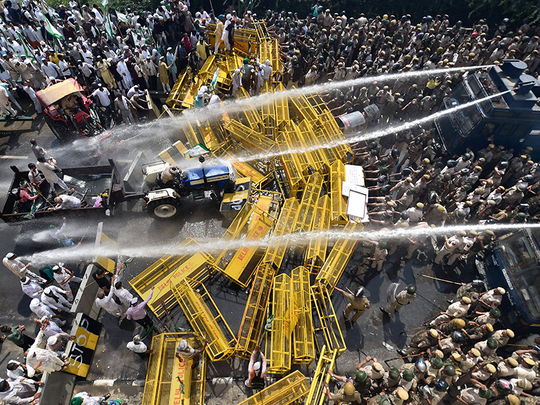
He has failed to protect our Olympic athletes against exploitation;
He has failed the people of Ladakh.
Indians who took the path of protest to fight exploitation are abused and are treated like terrorists. Manipur is still burning, but alas, it contributes only 1 Lok Sabha seat, which perhaps isn’t a PM-worthy visit. Ladakh’s sitting on an empty stomach in freezing temperatures to get the government to fulfil their own (the BJP’s) poll promises again isn’t perhaps a PM-worthy visit. China is exerting control and breaching the borders of Arunachal Pradesh and Ladakh; the whole media and the government are quiet on it.















































































